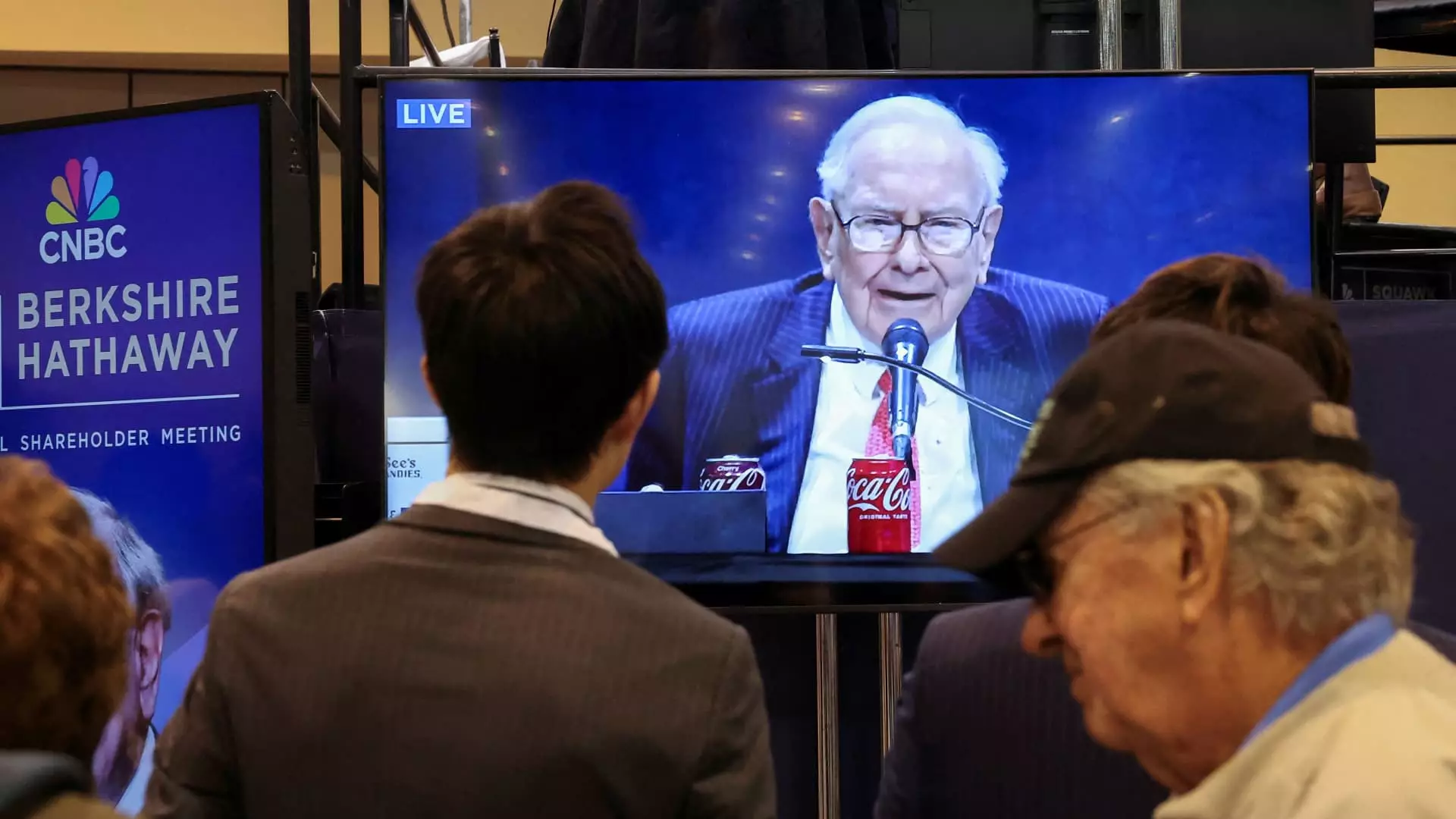Warren Buffett is rightly celebrated as one of the greatest investors of all time. Yet, his stepping down as CEO of Berkshire Hathaway strikes a complex chord. While it is undoubtedly a momentous occasion, one can’t help but question the ramifications of this transition. After more than six decades helming a company that has grown from a struggling textile mill into a $1.2 trillion behemoth, Buffett’s departure could be seen not just as an end, but as a significant risk to the empire he has crafted. The reliance on his genius, though perhaps diminished, still looms large over the company’s trajectory.
Buffett’s keen instincts and remarkable foresight shaped the investment landscape, but as he passes the reins to Greg Abel, the future of Berkshire remains shrouded in uncertainty. Are we prepared to trust a new leader with a legacy as intricate and intertwined as Buffett’s? Investors must contemplate whether Abel can carry this torch forward, maintaining the same level of excellence and strategic acumen.
Abel at the Helm: A Mixed Bag
Greg Abel, vice chairman of non-insurance operations, now faces the challenging task of stepping into Buffett’s shoes. Buffett’s decision to remain as chairman offers a semblance of continuity; however, it raises questions about whether Abel can truly assert his independence while under the towering shadow of his predecessor. Will Abel be allowed to implement fresh ideas, or will he find himself confined within the parameters set by Buffett’s long-standing philosophy?
In a capitalist society that values innovation, this transition could either foster new growth avenues or stifle creativity through over-dependence on the past. While some analysts argue that Abel’s familiarity with the company should ease the transition, the real test will lie in how he adapts to evolving market dynamics.
Stock Reactions: A Telling Indicator
The market’s immediate response to Buffett’s announcement—Class B shares declining by 2.9% and Class A shares dipping by 2.8%—illustrates investor trepidation. It reflects an unsettling psychology; that regardless of the decades-long growth and expansion achieved under Buffett, many still cling to the belief that the company’s worth is inextricably linked to its legendary founder. This momentary downturn serves as a stark reminder of the speculative nature of the stock market and highlights how sentiment can swing rapidly with news, neglecting underlying financial fundamentals.
Despite Berkshire’s track record of outperformance against the S&P 500 with a 19% rise this year, it begs the question: Are the investors more loyal to Buffett as a person rather than the company’s operational strength? Their hesitation may signal a broader reluctance to embrace change that is characteristic of many investors who are often risk-averse.
Operational Stability Amidst Change
From an operational standpoint, the immediate future of Berkshire Hathaway is not expected to deviate dramatically. Armed with a diverse portfolio—encompassing sectors such as insurance, energy, and retail—one could argue that the company is less reliant on any single individual. Analysts have expressed optimism that the culture and business approach under Abel will largely mirror that of Buffett; however, this merely raises the stakes for Abel to instill his own vision within an established framework.
Indeed, Buffett leaves behind a treasure trove of businesses functioning with strong cash flows and established reputations. Still, the best-laid plans can falter without effective leadership, urging caution for stakeholders who must adapt their expectations to Abel’s vision and strategy.
The Shadow of Insurance Underwriting
The first-quarter results reported a staggering 14% decline in operating earnings, with insurance underwriting profits witnessing a near 49% decrease due to costly wildfires in Southern California. This reality further complicates Abel’s starting point as he assumes control. While shouldering the burden of financial losses, Abel must demonstrate his capability to navigate challenges arising from external factors. Investors who typically seek asylum in the insurance sector may find their loyalty tested during turbulent times.
In this moment of uncertainty, the compelling narrative of Berkshire as a safe-haven stock could be jeopardized, making it crucial for Abel to reassure all stakeholders that the company will weather the storms ahead. Leadership determines success in such circumstances, and how Abel tackles these challenges will be indicative of Berkshire’s future.
In a narrative defined by Buffett’s powerful leadership and unparalleled insights, the transition to a new CEO will bring both risk and opportunity. The road ahead may be fraught with challenges, yet it could equally lead to a renewed era of growth, provided Abel seizes the moment with resolute confidence.

